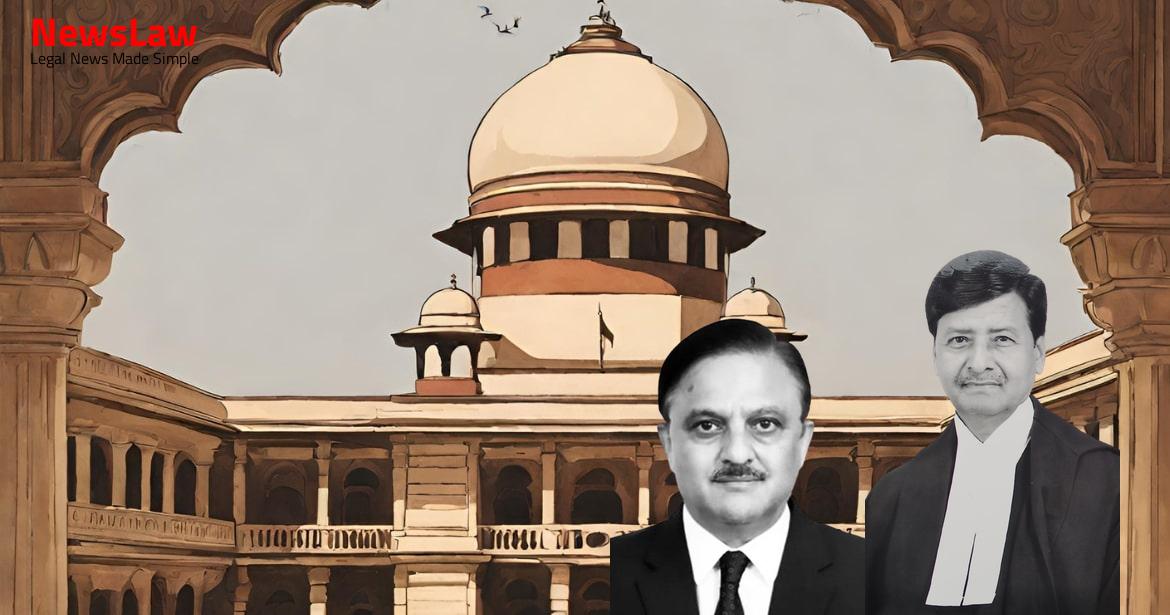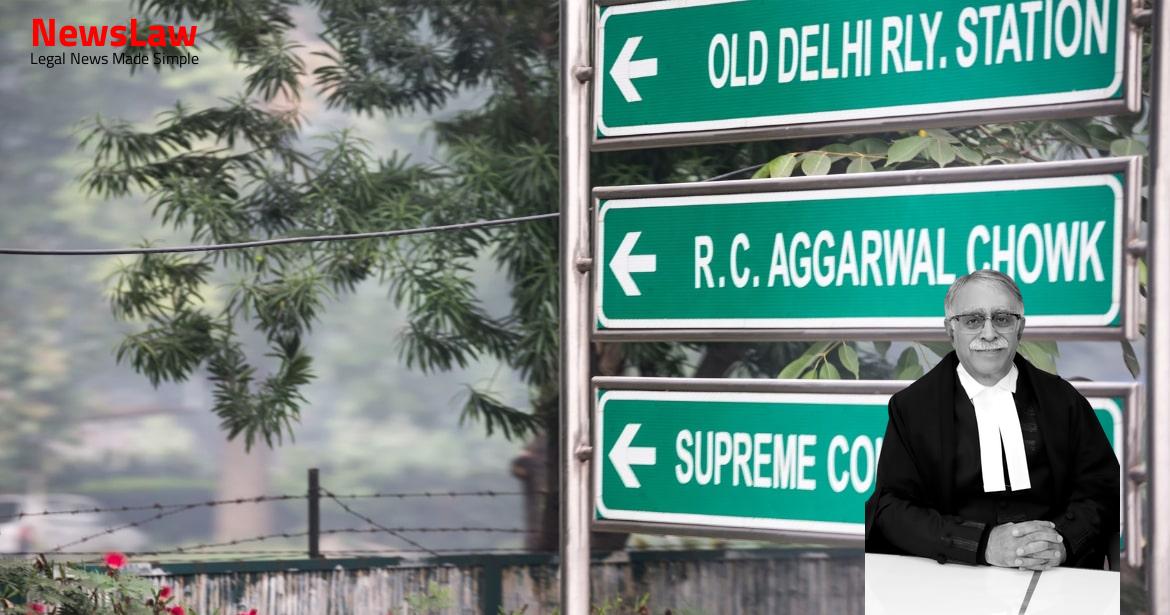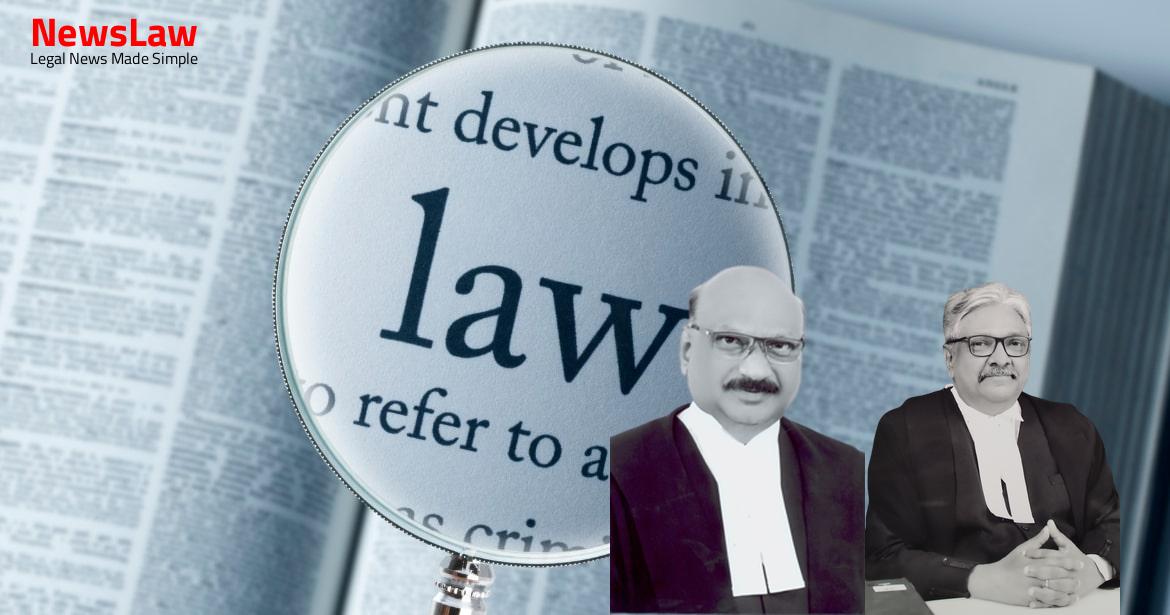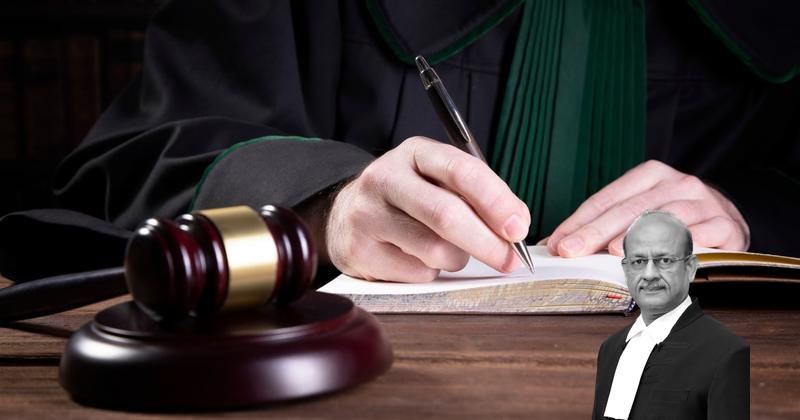Explore the in-depth legal analysis by the court in the quashing of criminal proceedings. The well-settled principles under Article 226 of the Constitution and Section 482 Cr.PC are highlighted, emphasizing the importance of fair and just legal processes. The court’s decision to quash the proceedings based on lack of evidence and potential abuse of legal process showcases the meticulous approach towards dispensing justice.
Facts
- The appellant obtained a succession certificate in her name after her husband’s passing and secured employment on compassionate grounds at King George Medical University.
- A complaint was filed against the appellant more than a year later, resulting in anticipatory bail and subsequent summoning by the trial judge.
- The appellant’s marriage to Mohd. Shameem Khan was conducted under Sharia law in December 2016, leading to the birth of a child in September 2017.
- Despite transferring her late husband’s gratuity to her mother-in-law, the appellant was later evicted from her matrimonial home by respondent no. 2.
- Allegations of a voidable marriage in 2014 with Shiv Gobind Prajapati were brought up, which was dissolved through a village Panchayat.
- The appellant’s plea for quashing the criminal proceedings was dismissed by the High Court in September 2021.
Also Read: Admission Deadline Adherence in Medical Courses
Arguments
- Shameem Khan, the appellant, was pressured by her brother-in-law to hand over her late husband’s terminal benefits for his own gain.
- Allegations of forgery in the Nikah Nama were falsely made against the appellant by her brother-in-law to sabotage her.
- No complaints were made by the deceased husband against the appellant during his lifetime.
- Allegations in the FIR were baseless and lacked evidence.
- The appellant was accused of harassing her late husband mentally and physically, leading to his sudden death in service.
- False allegations were made against the appellant regarding her behavior and actions after her husband’s death.
- The appellant was accused of obtaining a job on compassionate grounds through forgery and depriving the genuine dependents of her late husband of their terminal benefits.
- The criminal proceedings against the appellant were seen as an abuse of the legal process and a form of mental harassment.
- The High Court’s dismissal of the appellant’s petition under Section 482 Cr.PC was criticized for not considering the allegations properly.
- The principles laid down in the State of Haryana v. Bhajan Lal case were cited to argue that no offense was made out against the appellant based on the allegations.
- The appellant’s life was disrupted by the untimely demise of her late husband.
- The State counsel and the counsel for the complainant jointly submitted that the charge-sheet was filed only after the investigation following the FIR registration.
- Acknowledgment of the sequence of events in the legal process involving FIR registration, investigation, and filing of the charge-sheet.
- Collaborative support from both the State and complainant’s counsel regarding the procedural steps taken in the case.
Also Read: From Nominee to Disqualified: Supreme Court Scrutinizes Age Evidence, Declares Election Invalid
Analysis
- The court has laid down well-settled principles regarding the exercise of extra-ordinary power under Article 226 of the Constitution or the inherent power under Section 482 Cr.PC.
- It is presumed that a prima facie case against the appellant is made out in this instance.
- The present proceedings against the appellant are deemed to be an abuse of the legal process and hence quashed and set aside.
- If the allegations in an FIR do not constitute a cognizable offence but only a non-cognizable offence, police investigation is not permitted without a Magistrate’s order as per Section 155(2) of the Code.
- In cases where the allegations in the FIR are absurd and improbable to the extent that no prudent person could conclude there is sufficient ground for proceeding against the accused, the case should not proceed.
- Legal bars or provisions in the Code or related Acts may prevent the institution and continuation of proceedings, or provide alternative redress for grievances.
- Criminal proceedings manifestly attended with malice or maliciously instituted with ulterior motives for revenge or spite are not permissible.
- Upon review, it was found that none of the offences in the charge-sheet against the appellant are established, according to the available material on record.
- The High Court’s decision under Section 482 Cr.PC was deemed sound, and no further interference by this Court was required, given the comprehensive guidelines provided for the exercise of such powers.
- The power to quash criminal proceedings should be sparingly exercised and only in rare cases.
- The court should not assess the reliability or genuineness of the allegations in the FIR or complaint.
- Inherent powers of the court do not give arbitrary jurisdiction based on whims.
- In the instant case, there was no material to justify the bald allegations in the complaint which led to the FIR.
- Illustrative categories where the power to quash can be exercised include cases where the allegations do not constitute any offense against the accused.
- Allegations in the FIR must disclose a cognizable offense to justify police investigation under Section 156(1) of the Code
- Order of a Magistrate under Section 155(2) of the Code is required if the FIR does not disclose a cognizable offense
- Investigation by police officers must be justified by the allegations in the FIR
- Undisputed facts show appellant’s marriage, child’s birth, and husband’s untimely death.
- No prior complaints by late husband.
- Appellant received terminal benefits and got compassionate appointment.
- No factual supporting material for allegations in FIR.
- Nikah Nama duly registered; charge sheet lacks evidence of forged marriage certificate.
- No offence made out against the appellant; allowing proceedings would be an abuse of process of law.
Decision
- Criminal proceedings initiated against the appellant in reference to FIR No.0227 of 2019 dated 9 July, 2019 under Sections 494, 495, 416, 420, 504 & 506 IPC are quashed and set aside.
- The FIR was lodged at PS Bazar Khala, District Lucknow, U.P.
- Pending application(s) have been disposed of.
Case Title: SHAFIYA KHAN @ SHAKUNTALA PRAJAPATI Vs. STATE OF U.P. (2022 INSC 174)
Case Number: Crl.A. No.-000200-000200 / 2022



